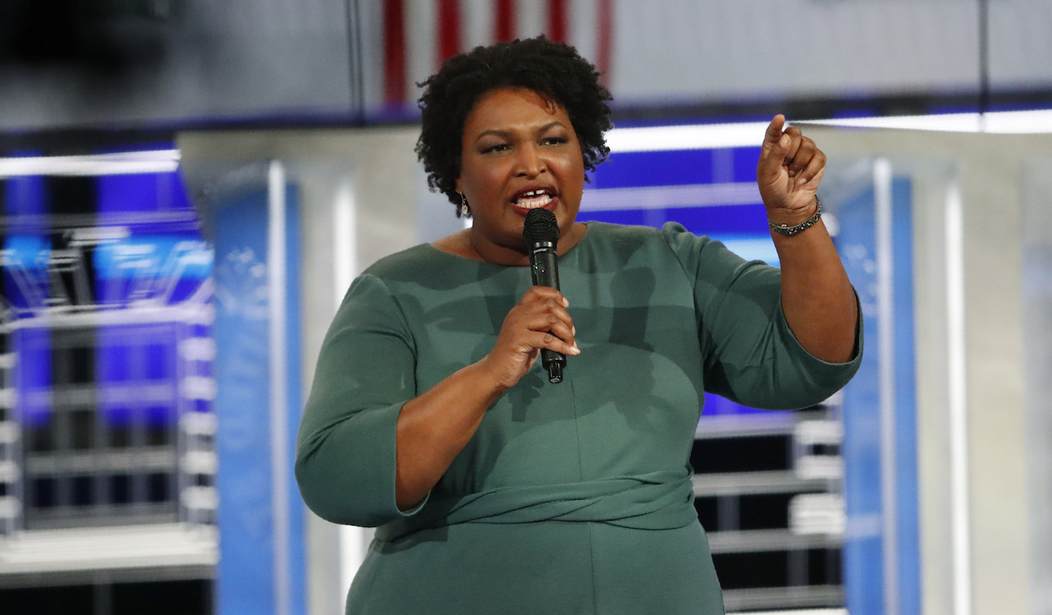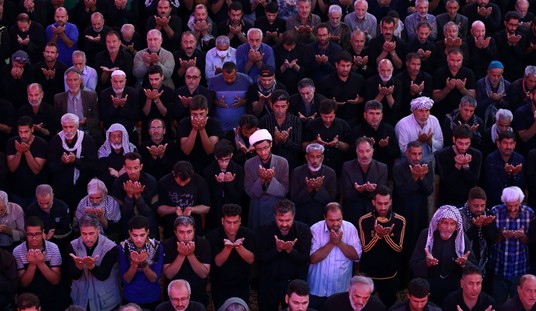Stacey Abrams has been nominated for a Nobel Peace Prize for her activism around voting rights by Norwegian lawmaker Lars Haltbrekken. As many Georgians will tell you, her work in this area has decreased confidence in our election process. Just look at the nationwide doubts following the 2020 election. Abrams has maintained a narrative that there is systemic voter suppression in the state, specifically of minorities. No data backs this up, but she has still never conceded defeat in her 2018 race against Governor Brian Kemp.
She has been rewarded for this refusal by the Democrat Party and the media, reinforcing her assertion. She has also raised funds and gained national prominence as a result of her false claims. Merely reviewing the allegations on the Fair Fight website compared to the actual data underscores the disconnect:
During the 2018 elections, and building on a long-history of suppressing the right to vote, the Secretary of State and the State Elections Board of Georgia violated these federal voting-rights laws. They created and enforced unconstitutional and otherwise unlawful policies and engaged in gross mismanagement. This led to an election that deprived Georgia citizens, particularly citizens of color, of their fundamental right to vote. To enforce these federal protections and correct these violations of federal law, Fair Fight turned to the courtroom.
First, after Abrams’s loss, one of her primary complaints was Georgia’s requirements for maintaining their voter rolls. Abrams claims it disproportionally affected minority voters and the process was unconstitutional. An analysis of the process showed this was not the case:
The vast majority of people whose registrations could be canceled — 62% — moved away, according to a list made public last week by the secretary of state’s office. Either they filed change-of-address forms showing they moved to a different county or state, or their mail from election officials was returned as undeliverable.
The remaining 120,561 registrations set for cancellation are matched to voters who haven’t cast a ballot since spring 2012 or before, according to the state’s list. Voter registrations can be canceled after three years of inactivity followed by no contact with election officials during the next two general elections.
Among those who identified their race to state election officials, 31% of those whose registrations could be canceled are black, while 33% of all registered voters are black. About 63% of the cancellation list is made up of white voters, who account for 59% of all registered voters.
So, voter roll maintenance does not display a disparate impact. Georgia’s process is also less strict than Ohio’s, which was upheld by SCOTUS in 2018. The charge of systemic minority voter suppression doesn’t hold up either. Governor Kemp was Abrams’ opponent. He served as secretary of state from 2010 to 2018, and voter ID has been a requirement in the state during that time:
Minority voting, despite state voter ID requirements and despite voter registration purges, surged in Georgia, with black voter registration increasing from 43% in 2014 to 60% in 2017—higher than the percentage among white registration.
Georgia’s fortunes mirror a national trend. According to the Census Bureau, black turnout nationally grew around 27% in 2018. A Pew Research Center study found that “all major racial and ethnic groups saw historic jumps in voter turnout.”
Much of the increase is attributed to expanding the methods of registration under Kemp. Motor-voter, online, and in-person registration are all available.
Abrams lost her 2018 race by roughly 55,000 votes. According to exit polling, 8-11% of black men voted for Kemp, which was similar to the number that voted for President Trump in 2016. Election watchers credit this gap and a reduced number of white females than other Democrats in the midterm with costing her the race. The spread was not close enough to force a runoff or a recount.
Her primary role in 2020 was reducing election security with things like drop boxes. And while some credit her with Democrat wins in the state, the black share of the vote declined to its lowest level since 2006.
Abrams was hailed by the media for her efforts to register more than 800,000 new voters through her two organizations, Fair Fight and the New Georgia Project. But registration does not equal turnout, and Biden made more gains in the state with groups Abrams did not assist.
The Democrat wins in the Senate runoffs had more to do with Republicans staying home than the absentee ballot push Abrams group ran. Approximately 250,000 Republican voters stayed home after voting in November, far outstripping Jon Ossoff or Raphael Warnock’s margin. If not for the election controversy following November 2020, the two seats would likely have remained in GOP hands.
Abrams will continue to be lauded by the media and the Democrat Party. It’s ludicrous that her antics earned a Nobel Peace Prize nomination. However, another of the Norwegian socialist lawmaker’s nominations was Black Lives Matters, whose “mostly peaceful protests” caused roughly $2 billion in damage to cities nationwide during 2020. More than two dozen were killed in those riots, most of them minorities. Affected neighborhoods will take years or decades to recover, if they ever do. He also nominated the teen who is angry at the weather, Greta Thunberg, naturally. Hopefully, the full list of nominations is much longer than this and is full of genuinely deserving nominees.
Unity Watch: Dems File Ethics Complaints Against Sens. Josh Hawley and Ted Cruz










Join the conversation as a VIP Member